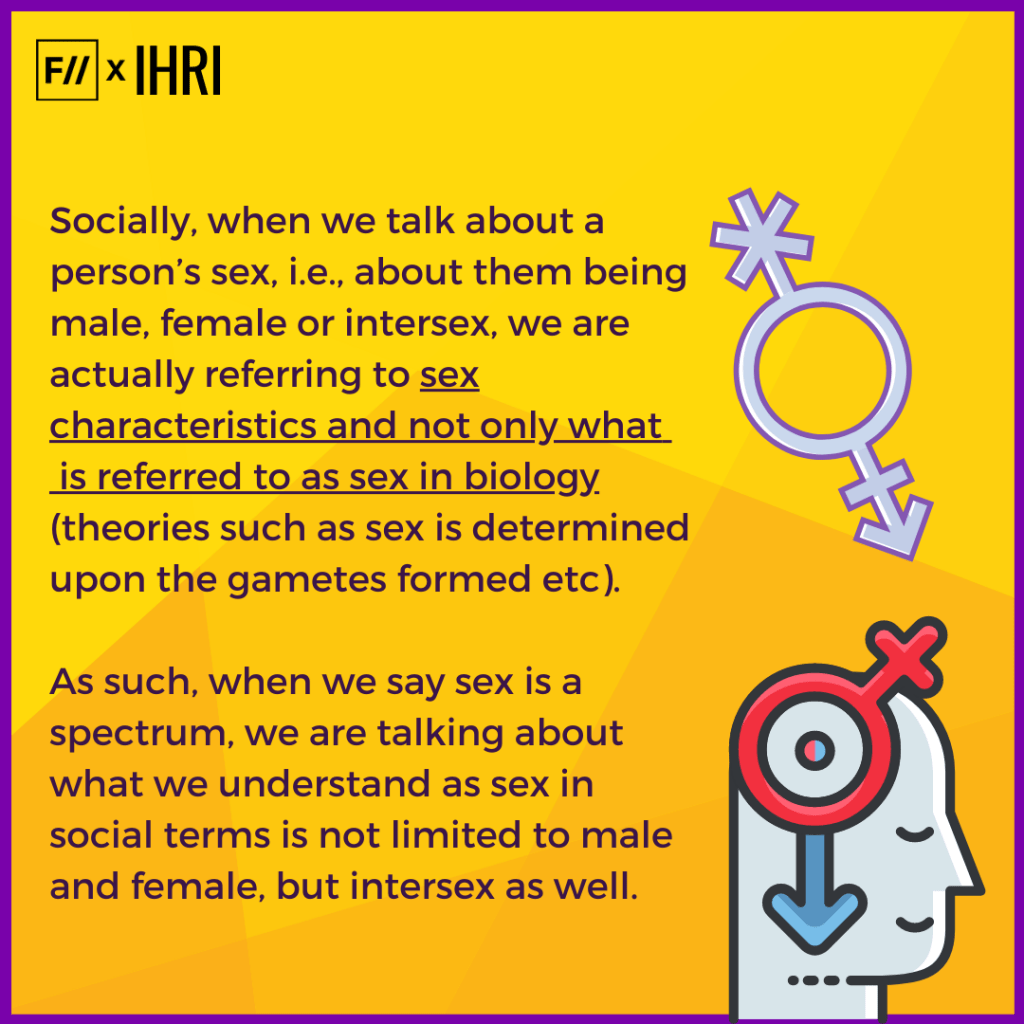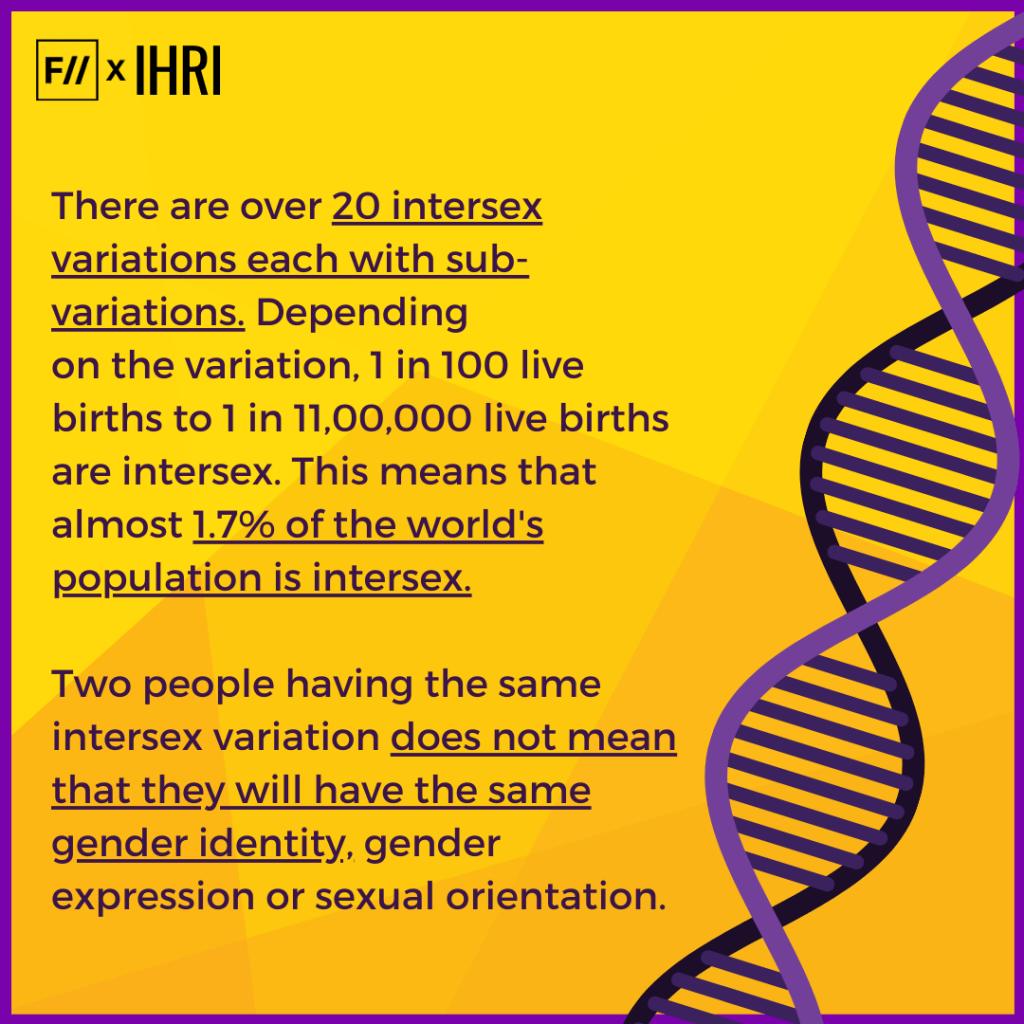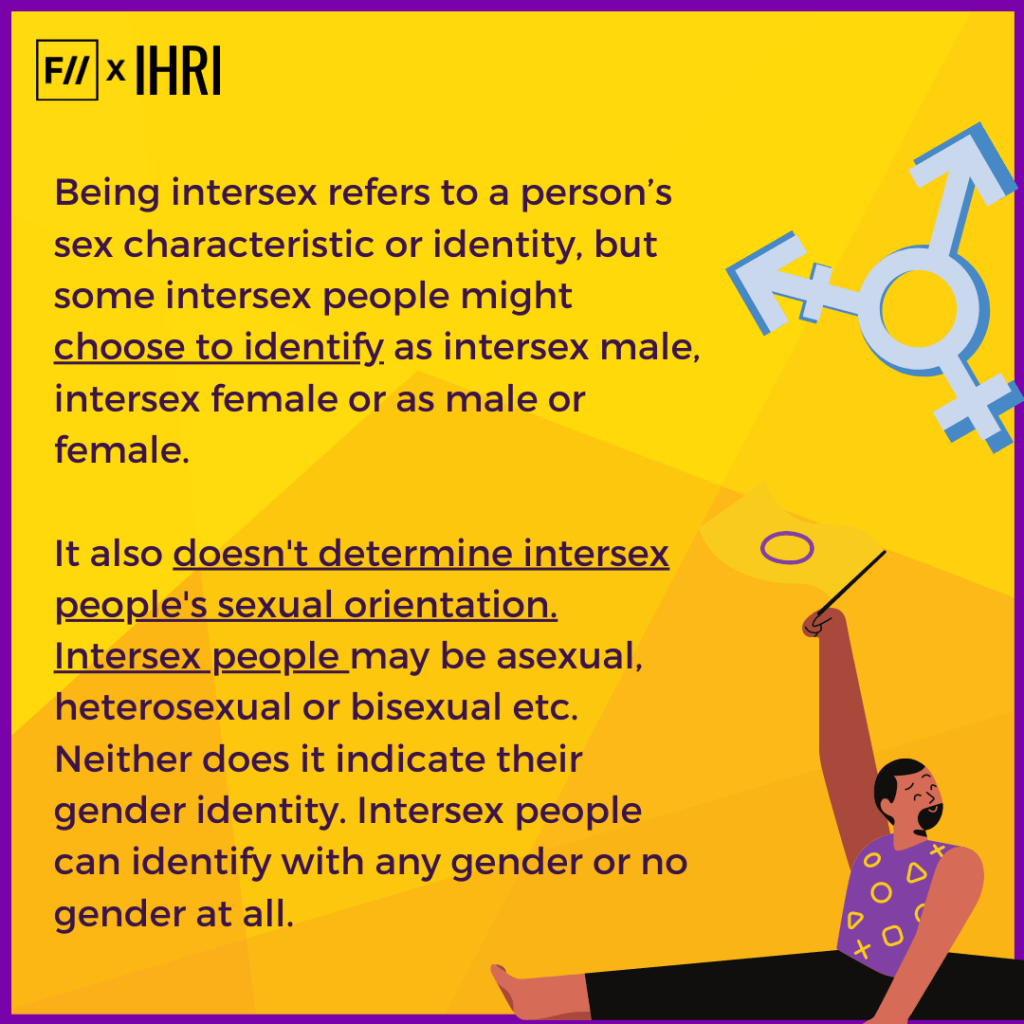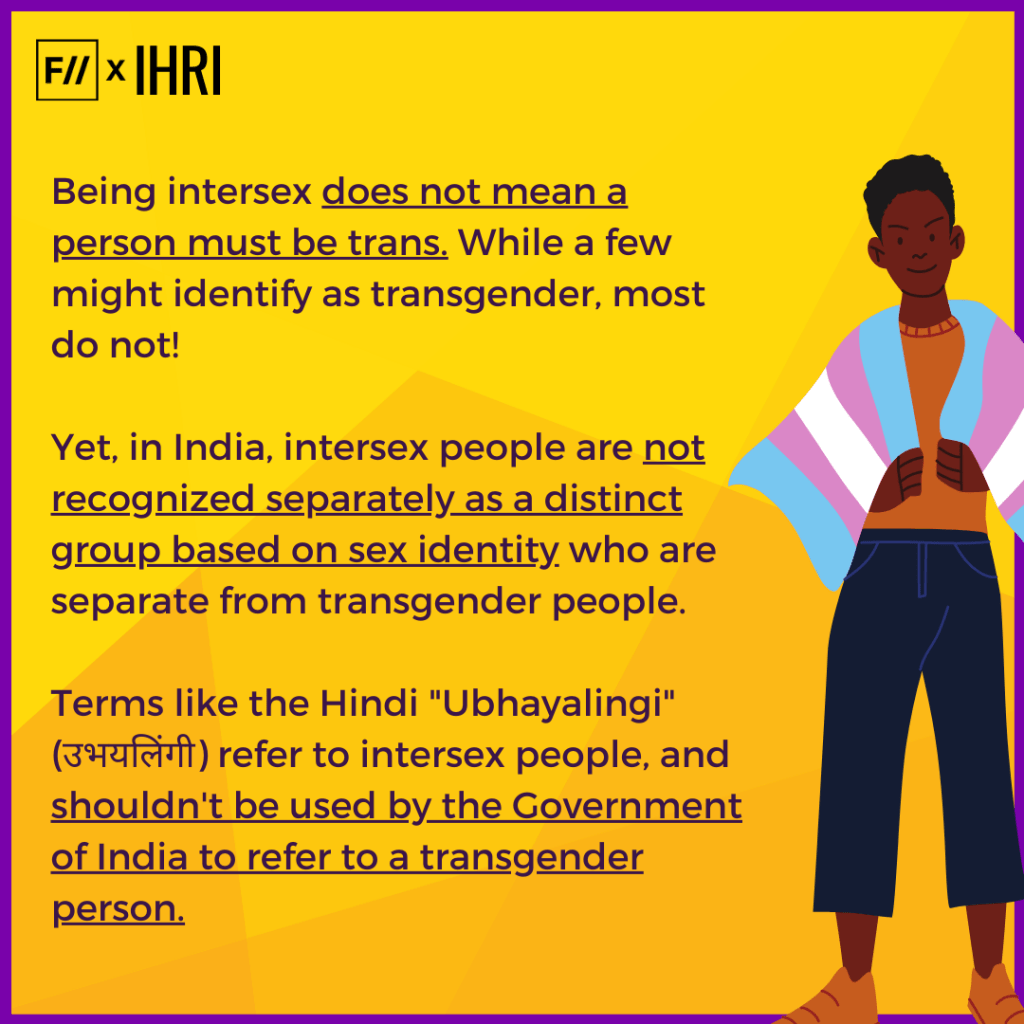When we talk about the LGBTQIA+ community and their rights, intersex people are often left out of the discussion. Their experiences, their stories, and their struggles are often invisibilised. Most people remain unaware of the term ‘intersex’ and don’t think of intersex people as a distinct group based on sex identity, who are separate from transgender people. So, on this Intersex Awareness Day, let’s talk about the ‘I’ and in LGBTQIA+ and what it means to be intersex in India.

Intersex people are people born atypical of male and female sex. Intersex people have intersex variations of sex, meaning their sex characteristics do not fall within what is understood strictly as male and female sex. This includes but is not limited to ambiguous genitalia. This might be apparent at the time of birth or later in life.

Socially, when we talk about a person’s sex, i.e., about them being male, female or intersex, we are actually referring to sex characteristics and not only what is referred to as sex in biology (theories such as sex is determined upon the gametes formed etc). As such, when we say sex is a spectrum, we are talking about what we understand as sex in social terms is not limited to male and female, but intersex as well.

Also read: Meet Ashwathi Rajappan: India’s First Openly Intersex Person To Contest In The Lok Sabha Elections
When we say being intersex is natural phenomenon, we are saying that intersex variations are not limited to human beings, but are found in other animals and plants as well. Therefore, even though socially we might not have been aware of it, sex is a spectrum of female, intersex and male.

There are over 20 intersex variations each with sub-variations. Depending on the variation, 1 in 100 live births to 1 in 11,00,000 live births are intersex. This means that almost 1.7% of the world’s population is intersex. Two people having the same intersex variation does not mean that they will have the same gender identity, gender expression or sexual orientation.

Being intersex refers to a person’s sex characteristic or identity, but some intersex people might choose to identify as intersex male, intersex female or as male or female. It also doesn’t determine intersex people’s sexual orientation. Intersex people may be asexual, heterosexual or bisexual etc. Neither does it indicate their gender identity. Intersex people can identify with any gender or no gender at all.

Also read: The TV Show ‘Shakti: Astitva Ke Ehsaas Ki’ Fails The Intersex Community
Being intersex does not mean a person must be trans. While a few might identify as transgender, most do not! Yet, in India, intersex people are not recognized separately as a distinct group based on sex identity who are separate from transgender people. Terms like the Hindi “Ubhayalingi” (उभयलिंगी) refer to intersex people, and shouldn’t be used by the Government of India to refer to a transgender person.

Since 2006, intersex people are referred to as people with Disorders of Sex Development in medical science. But intersex people prefer to be known as either intersex or as people with Difference in Sex Development. Doctors should refer to intersex people as people with intersex variations, or people with differences in sexual development.

Being intersex does not automatically mean a health problem. While some variations might cause certain instances that require medical treatment, not all variations do! Intersex children and people shouldn’t have to go through sex assignment surgeries just for the sake of it, unless intersex adults choose to go through it themselves.

Yet many are forced to undergo unnecessary surgeries, hormone treatments due to the societal pressure of understanding sex as a male/female binary. Medically unnecessary surgeries carried out to assign a sex to an intersex child is known as intersex genital mutilation and has been recognized by the UN (UN OHCHR, UN CAT, UN CRC) as gross human rights violation and torture.

The content and concept of this series was provided by Neeraja Rajan from Intersex Human Rights India (IHRI) and Orinam, respectively.
About the author(s)
Feminism In India is an award-winning digital intersectional feminist media organisation to learn, educate and develop a feminist sensibility and unravel the F-word among the youth in India.




